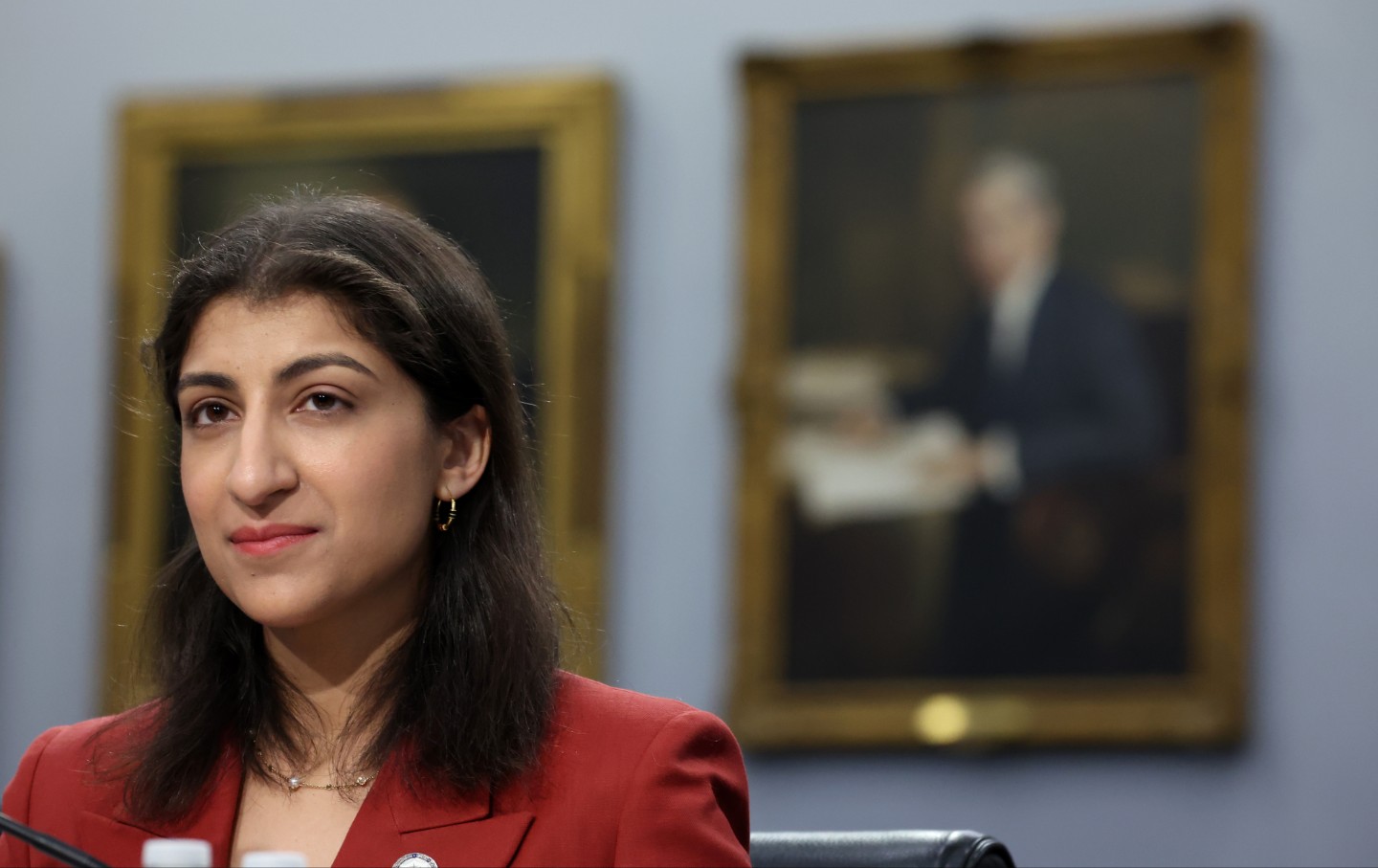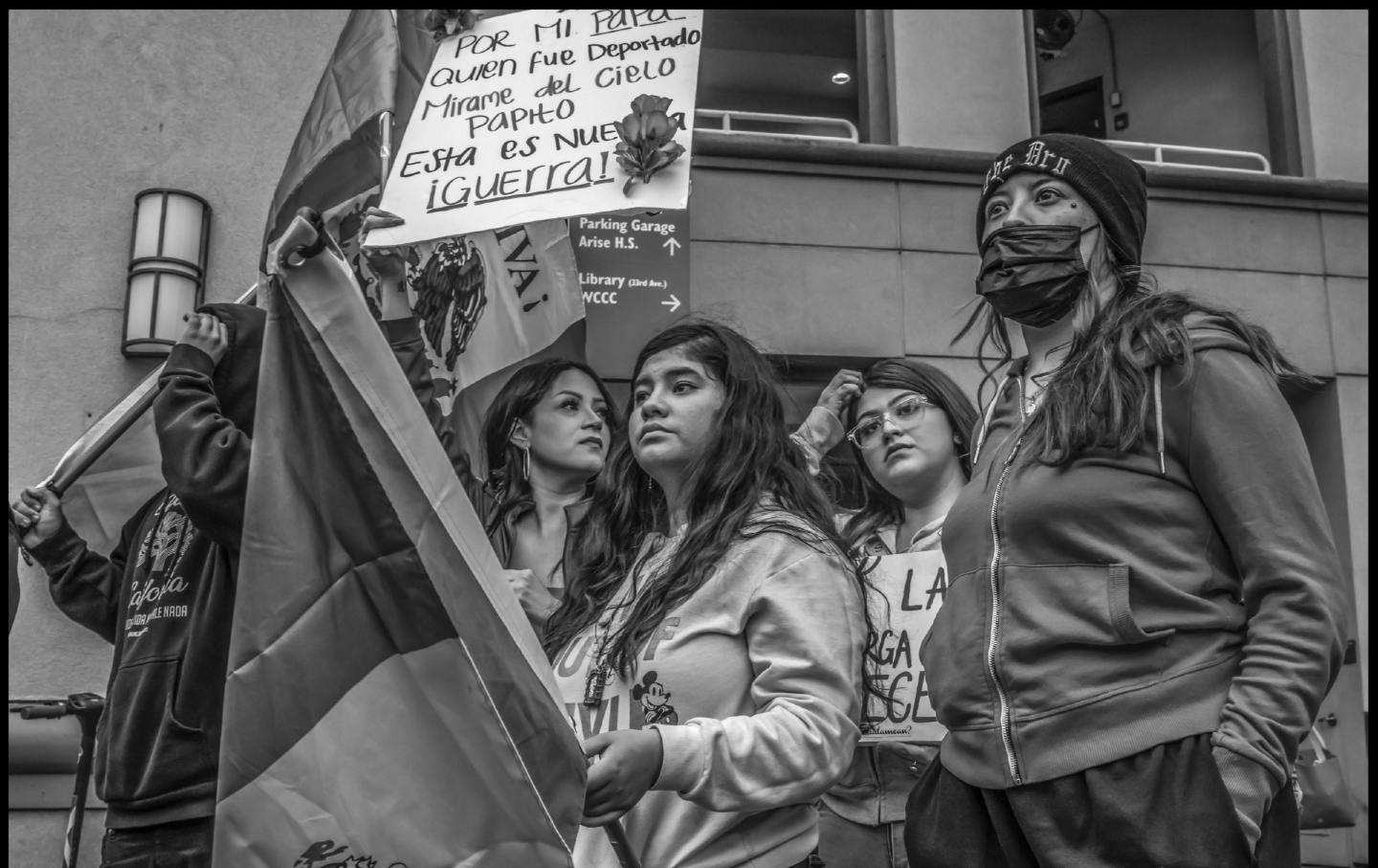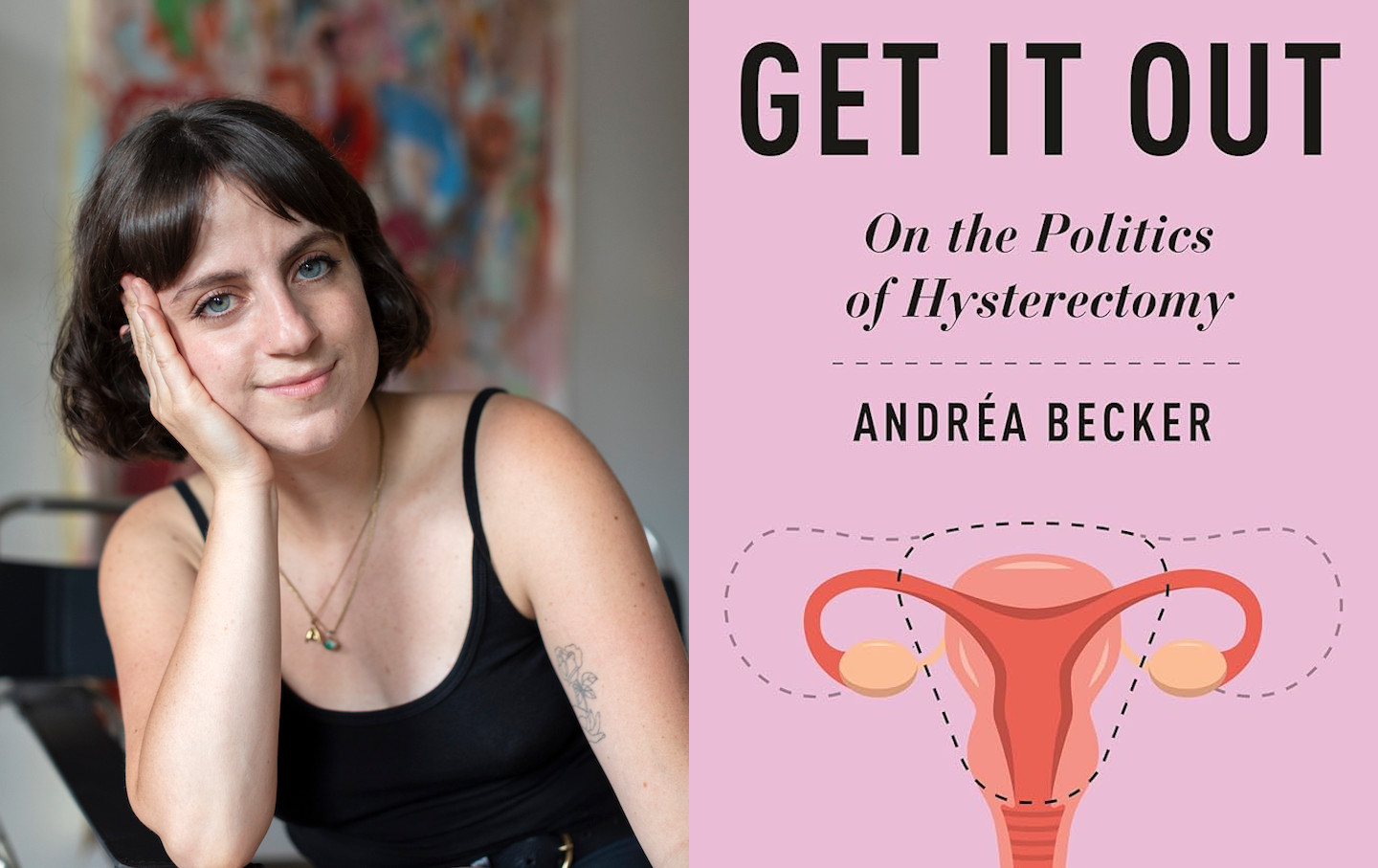Philly workers went out on strike—and came back with a deal that nobody seems to like.

It has now been a week since Philadelphia’s striking municipal workers went back on the job. During their historic eight-day work stoppage, normal city operations ground to a very obvious halt.
When contract negotiations broke down at the end of June between Mayor Cherelle Parker’s administration and AFSCME District Council 33—which represents 9,000 of the city’s blue-collar employees—the union had a choice. It could accept a contract extension (as it had already done in 2024) or consent to stay at the bargaining table and work without a contract. Instead, the union chose the more difficult path. For the first time since 1986, DC33 walked out.
The major issue was money. DC33 is the lowest-paid of the city’s four municipal unions; it is also the only one with a majority-Black membership. In 2024, the union was able to negotiate a 5 percent raise alongside the contract extension that Mayor Parker had requested, but even with that small bump, the members struggled.
The median salary for a DC33 member is $46,000, startlingly low compared to those of their counterparts in places like Chicago and New York City; for sanitation workers, with a salary range of $39–42,000, that comes out to about $18–20 per hour to deal with the 610,000 tons of trash the city generates annually, and falls several thousand dollars short of a living wage. One of the primary purposes of a strike is to apply pressure, and few of us enjoy quite so much leverage as a sanitation worker in a major city during the midst of a summer heat wave.
When DC33’s representatives, including outspoken union president Greg Boulware, sat down with the city to hammer out a new contract for its members, they aimed to make significant improvements to that embarrassing status quo. It shouldn’t have been that big of a lift. The city currently has a budget surplus of $882 million that is under the mayor’s direct control. Parker budgeted $550 million to cover new contracts for the four municipal unions (DC33, its sister union DC47, the firefighters, and the police, whose recruits start at a comparatively princely $64,000).
Given that the mayor’s latest city budget proposal includes $872 million for the police department, out of a total $6.7 billion, one might have assumed that Parker could easily find a few extra pennies for the city’s blue-collar workers. In addition, Mayor Parker proudly styles herself and her administration as pro-worker and pro-union. Her own personal story of growing up in poverty in North Philadelphia burnishes her working-class bona fides, and as the first Black woman to hold Philadelphia’s top job, she shares common ground with many of the women who make up DC33. Parker, a moderate Democrat who ran on “tough on crime” policies, is especially friendly with the building trades, whose support helped her get elected in 2023. Conversely, DC33 declined to endorse her that year, and her evolving relationship with the union and its leadership has remained less than cozy.
Despite this, reporting from The Philadelphia Inquirer implied that the union still hadn’t expected to be met with so much resistance, and was taken aback by the Parker administration’s combative, sometimes outright hostile posture during the strike. After a few days on the picket lines, in an effort to play ball, DC33 even bumped their original ask of an 8 percent raise for each year of a four-year contract down to 5 percent, but Parker refused to budge, citing a need to keep the city “on solid fiscal ground.”
Current Issue

The term “blue-collar city worker” covers a lot of bases, and it’s a high-wire act to keep a city of 1.5 million people running at all, let alone efficiently, without the people whose job titles fall under that vague definition. This became very clear, very quickly, when the strike began at 12:01 am on July 1. But instead of returning to the bargaining table with a better offer, the Parker administration ran to the courts. A flood of litigation began the moment DC33 walked out. A judge quickly granted the city three injunctions: one that forced striking 911 dispatchers back to work, another that did the same to a “skeleton crew” of water department employees, and one that slapped restrictions on workers and their allies’ ability to picket outside municipal buildings.
Philadelphia’s labor community was taken aback. “Aggressive injunctions meant to break a strike and attacking union leaders to divide them from membership is straight from the anti-union playbook,” City Council member Kendra Brooks said in a statement following the end of the strike. “That’s divisive in a pro-union town.”
By July 3, another injunction sent strikers from the medical examiners’ office back to work. A “backlog” meant that the morgue was “over capacity,” as news coverage delicately phrased it, and bodies were being stored two to a bed. The lack of staff had also left the office struggling to pick up and transport bodies to refrigerated storage areas, as exemplified by the horrifying story of a 19-year-old man who had been shot in the face early that morning and left for dead. His body lay in the street for hours, half a block from his home. As the mayor continued to insist that the city’s offer was worth taking, corpses were piling up and bodies were being left outside in 90-degree weather because the workers who usually handled them were out sweating on the picket lines.
The living were suffering, too. Late in the evening on July 3—perhaps the strike’s most unfortunately eventful day—36-year-old sanitation worker Tyree Ford and his pregnant fiancée, fellow DC33 member Aaliyah Norris, were doing picket duty on Delaware Avenue when a drunk driver swerved onto the sidewalk they were sitting on. In the split second before it hit them, Ford leapt to push Norris out of the way, saving her life as well as that of their unborn son. That left only his body to absorb the impact from the black SUV.
According to his sister, Crystal Purnell-Bolden, Ford suffered a litany of severe injuries, including multiple skull fractures, a broken femur, a broken collarbone, a broken pelvis, and injuries to his eyes, face, and lungs. The father of six has a long road ahead of him, and his sister has set up a GoFundMe to help with his medical expenses. “Those men and women are out there just to do their part and to have something tragically happen like that senselessly, it’s terrible,” DC33 president Greg Boulware said when he heard the news. “God willing he’s able to recover. He may never get the opportunity to work again because of the severity of his injuries.”
Under the tentative agreement that Mayor Parker and DC33’s executive board signed on July 8, Ford would not be in good financial shape even if he did miraculously make it back to work tomorrow. As a sanitation worker, he would’ve stood the most to gain from that 5 percent raise the union sought, and it still wouldn’t have been much. Once the public was informed about how little these city workers actually make (and experienced a tiny taste of what the sanitation workers deal with every day), the city’s refusal to bend came across as petty and mean, instead of the “tough love” approach they were clearly aiming for. Parker’s insistence on defending her own six-figure salary and hefty recent raise rubbed people the wrong way, too, and her communications team fanned the flames by putting out infographics that seemed to imply the workers were asking for too much. The public began to speak up on social media and at rallies, urging the mayor to pony up and pay the workers what they were asking. Parker became the face of the strike, serving as the unhappy inspiration for both “Parker piles” and the popular picket line chant, “What’s that smell? Blame Cherelle!”
When LL Cool J and Jazmine Sullivan canceled their appearances at the Wawa Welcome America concert on July 4 in solidarity with the strikers, it seemed as though a corner had been turned. Surely, the mayor would have to come around now. The national media was finally starting to pay attention, their cameras lingering lovingly on the reeking garbage piles that began to take over the city. With heavy rainstorms on the way, the trash problem was about to get exponentially worse, and no one was excited about that prospect (especially the small-business owners and homeowners who were already complaining about the temporary dumpsters parked in front of their buildings). Parker had already been caught using scab labor to set up the Welcome America stages and paying private contractors to dispose of (some) trash. It just didn’t make political sense for her to commit to lowballing these workers. The strike was tumultuous, disruptive, and very, very pungent, yet the residents of the city were still behind the strikers all the way.
Popular
“swipe left below to view more authors”Swipe →
So when the news broke early in the morning of July 8 that the strike was over, it took many people by surprise—including the strikers. A huge support rally that had been planned to take place at City Hall that afternoon was hurriedly canceled, and strikers began receiving notices to report back to work. Rumors flew. Had Parker been preparing to unleash an injunction ordering the sanitation workers back to work on public health and safety grounds, as she’d done with the medical examiners office? Were the pressures of these underpaid workers’ first week without a paycheck too dire? Did the wretchedly hot, humid, rainy weather play a role?
No one but the people who were directly involved in negotiations knows for sure, but DC33’s Boulware made his feelings plain as he exited the municipal building that morning. “The strike is over, and nobody’s happy,” he told The Philadelphia Inquirer. “We felt our clock was running out.”
A rough outline of the deal was soon shared online and with the membership, and to call it “underwhelming” would be a real seventh-inning stretch. The end result was a 9 percent raise over a three-year contract, which was far below what the union was seeking ( remember, most of these workers are making less than $2K per month after taxes). They did manage to retain control over their healthcare plan and beat back some of the city’s more punitive proposals, but it was more of a defensive win than anything else. With the annual rate of inflation at 2.9 percent, the workers may be getting an immediate 3 percent “raise,” but they’ll basically be treading water.
On Monday afternoon, union members voted to approve the contract. Meanwhile, Mayor Parker hailed the deal as a victory for her administration, though she may be the only one happy about it. While she stood her ground and successfully defended what she thought was her fiscal responsibility, her reputation among the city’s labor community has been indelibly tarnished. Parker’s term as mayor isn’t up until 2027, but she’s already been looking ahead—and as she herself acknowledged, that future may not be bright. “You can threaten me with not supporting me if I decide to run for reelection,” Parker said at the top of the Philadelphia Art Museum steps during the strike. “But I’ll tell you what I will not do. I will not put the fiscal stability of the city of Philadelphia in jeopardy for no one. If that means I’m a one-term mayor, then so be it.”
For now regular trash pickup has resumed, more or less, and the stinking, moldering “Parker piles” of trash, furniture, and discarded construction materials that dominated the news coverage have begun to disappear. The water supply is flowing (though you should probably still use a filter). The libraries and city pools are open; the airport is running as smoothly as it ever does; and if you call 911, an operator meets you on the line. The medical examiners’ office is operating at its normal capacity, busy as ever in a town where murder or accidental death is a daily occurrence.
DC33’s workers are back on the job, doing what they do to keep the city running. They know that Philadelphians will have their backs, but they are still underpaid, still overworked, and unappreciated by the people who sign their paychecks.
In short, something’s still rotten in the city of Philadelphia, and everyone can smell it.
More from The Nation

The network claims it’s canceling The Late Show for financial reasons, but the real bottom line here is Trump appeasement.
Ben Schwartz

Partisan politics is making a travesty of justice.
Jeet Heer

Forget Kennedy’s faux-populist, anti-science approach. The former FTC chair provides the real model of an ideal HHS secretary.
Abdullah Shihipar

With Trump and Stephen Miller cheering on ICE’s terror tactics, Jaime Alanis Garcia’s fatal fall in the raid on Glass House Farms was the most recent example of a death foretold.
David Bacon

In Sweden, abortion pills are used to terminate pregnancies through 22 weeks gestation, compared to just 10 weeks in the United States.
Cecilia Nowell

A conversation with the medical sociologist about her new book, Get It Out, and the perils of considering abortion, hysterectomy, and gender-affirming care as separate issues.
Q&A
/
Sara Franklin


